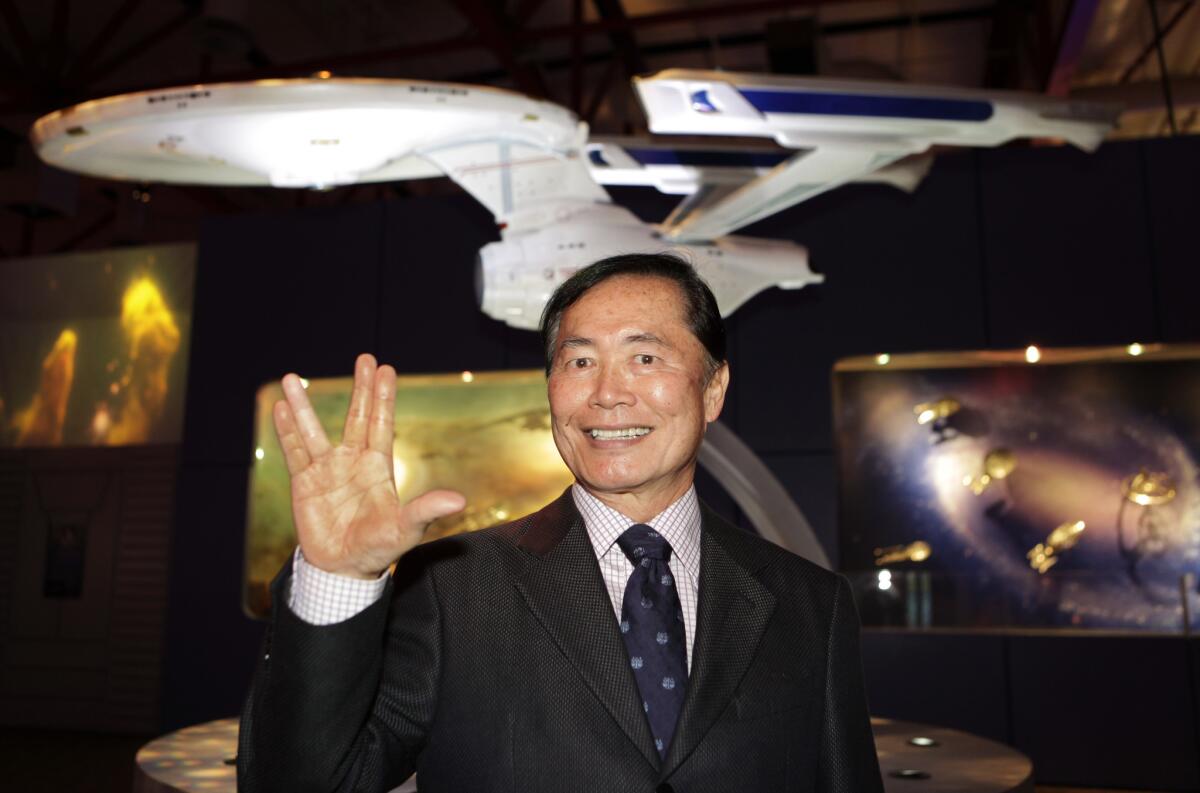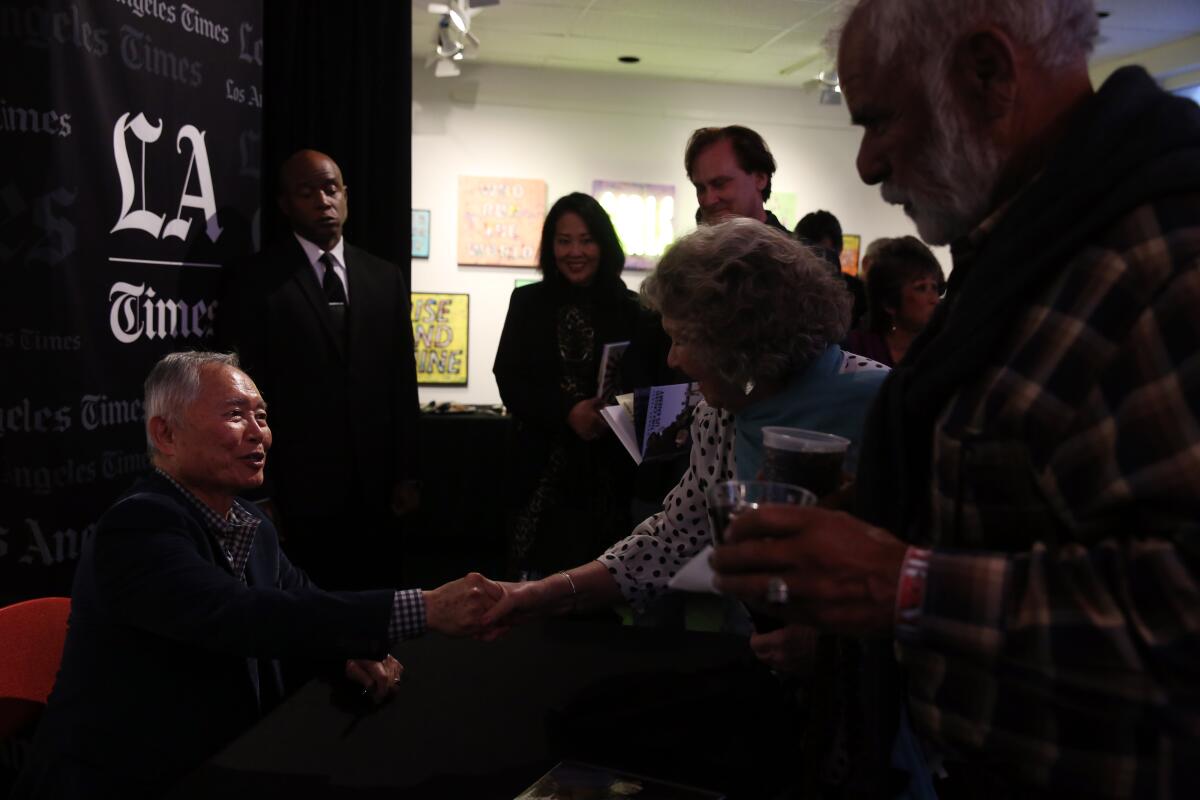Discussion guide to ‘They Called Us Enemy’ by George Takei
- Share via
Actor George Takei has told his family’s story in an autobiography, a TED talk and a Broadway musical. With a new graphic memoir, “They Called Us Enemy,” he wants to reach a generation that may know little of how 120,000 Japanese Americans were imprisoned in internment camps during World War II.
The book, a recent Los Angeles Times Book Club selection, begins when armed soldiers force 5-year-old George, his parents and his two younger siblings from their Los Angeles home. “It is burned into my memory,” Takei writes of that day.
The soldiers took the family to a horse stall at Santa Anita Racetrack. Later, they were shipped to the Rohwer Relocation Center in southeastern Arkansas and later to the high-security Camp Tule Lake in Northern California.
Takei, known for his role as Mr. Sulu on the original “Star Trek” series, details his experiences during four years spent behind barbed wire. “They Called Us Enemy” addresses family, identity, displacement and political issues that have shaped Takei and the United States from the 1940s to the present day.
Topics for Discussion
- What did you know about Japanese American incarceration during World War II before reading the book? What new information or details did you learn?
- Are there any West Coast locations referenced in the book that are familiar to you? Did you see those places differently?
- George Takei recounts his experience from the perspective of a small boy. How does that benefit or take away from the narrative?
- Takei’s mother smuggled in a sewing machine to make clothes for her children, even though it was forbidden. What items would you bring?
- Readers see Takei deal with the trauma of the camps (pages 141-145). He argues with his father and questions the choices his father made during that time. What do you make of the argument? Is Takei’s critique of his father fair?
- How do you think being incarcerated at a young age shapes identity or affects someone as an adult?
- As a teenager, Takei became curious about the internment camps but couldn’t find information in history books. What historical events are tied to your family history? How and when did you learn about them?
- After Takei’s family leaves the camps, he writes that he felt longing for “those barbed-wire fences ... to us, that was home.” To you: What makes a home a home?
- What was the most powerful moment or scene from the book?
- Takei and his father argue about American democracy (Page 195). What do you think about the following statement by Takei’s father: “Despite all that we’ve experienced, our democracy is still the best in the world because it’s a people’s democracy.”
- In 1988, President Reagan apologized on behalf of the United States and signed an act granting $20,000 to each of the surviving 60,000 internees. What are your thoughts? Can we place a price on what was done?
- Takei has told the story of Japanese American internment camps in different forms during the years. What do you think about his decision to share this story in 2019 as an illustrated graphic memoir? Have you read other graphic novels?
- How does Takei’s story connect with issues going on in the United States today?
- What will you take away from this story?

More information
Author Interview: George Takei talks about “They Called Us Enemy” and his career as an actor and activist.
Review: “They Called Us Enemy” by George Takei, Justin Eisinger and Steven Scott; illustrated by Harmony Becker. Top Shelf Productions: 204 pages; $19.99.
Community discussion: Takei joined L.A. Times Book Club readers on Sept. 10. Read a news account. Watch a recap on Spectrum News1.
TV episode: The AMC series “The Terror: Infamy,” is set during World War II; producers built a scaled-down replica of the Manzanar internment camp in Central California. Takei plays an elder in the Japanese American fishing village at Terminal Island, which was wiped away by the internment order after the attack on Pearl Harbor.
Reading list: Immigrant tales to read and embrace.
Los Angeles Times Book Club: Sign up at latimes.com/bookclub. Join the discussion in the book club Facebook Group.

More to Read
Sign up for our Book Club newsletter
Get the latest news, events and more from the Los Angeles Times Book Club, and help us get L.A. reading and talking.
You may occasionally receive promotional content from the Los Angeles Times.








